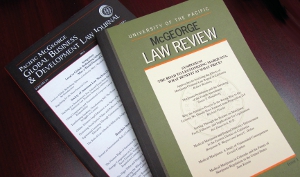Artificially Intelligent Persons
Document Type
Article
Publication Date
2021
Abstract
Artificial Intelligence (AI) entities seriously challenge traditional legal frameworks for attribution and liability because they operate at an increasing distance from their developers and owners, resulting in accountability gaps. Consider a scenario in which a self-driving car causes injury or even death to a human. Who do we hold accountable? We have no clear answer as to who can be sued or prosecuted because we lack a comprehensive legal understanding of AI entities. Many scholars propose as a solution to the accountability problem attaching liability to the direct source of the harm, the AI entity itself, by first granting it legal personhood. But the law has yet to answer the question of whether AI entities qualify for legal personhood and, if so, on what legal basis.
This Article is the first to empirically assess the scope of legal personhood as it relates to AI entities and to answer this question. I make two claims about the problem of legal personhood for AI. First, I argue that the courts’ overall approach to legal personhood has been more disparate than many have assumed, and it does not support legal personhood for AI entities. To substantiate this position, I evaluate the legal basis for judicial decisions conferring legal personhood on artificial entities across U.S. courts from 1809 to the present, and I offer a statistical analysis of the frequency with which different conditions for legal personhood appear in these decisions. I find a clear dissonance between legal doctrine and existing theory on legal personhood for AI entities. Second, I argue that empirically understanding the legal landscape for legal personhood prevents courts from conferring legal personhood on AI entities and should give legislators pause before doing so. If courts and legislators consider the conditions for legal personhood that this Article identifies in answering questions of liability for AI entities, they will discover the incompatibility between legal personhood and these entities. Without recognition of this incompatibility, theory, policy, and litigation surrounding AI entities could move in a direction that undermines legal certainty and upsets legal expectation.
Publication Title
Houston Law Review
ISSN
0018-6694
Volume
58
Issue
3
First Page
537
Last Page
596
Recommended Citation
Nadia Banteka, Artificially Intelligent Persons, 58 Houston Law Review 537 (2021).



